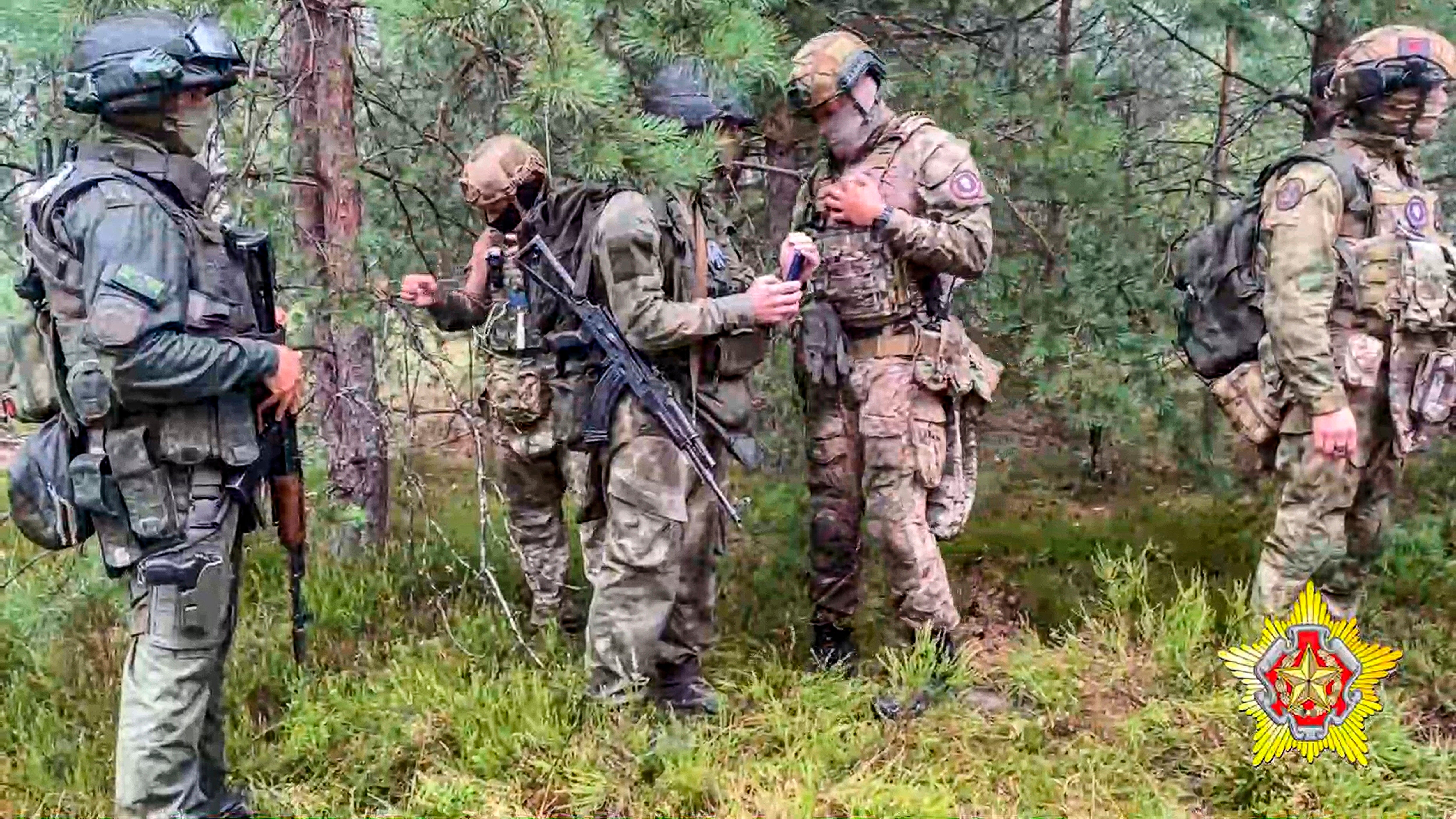Wagner mercenaries in Belarus move closer to the Polish border, Poland's prime minister says
The Polish prime minister says that over 100 mercenaries belonging to the Russian-linked Wagner group in Belarus have moved close to the border with Poland

Your support helps us to tell the story
From reproductive rights to climate change to Big Tech, The Independent is on the ground when the story is developing. Whether it's investigating the financials of Elon Musk's pro-Trump PAC or producing our latest documentary, 'The A Word', which shines a light on the American women fighting for reproductive rights, we know how important it is to parse out the facts from the messaging.
At such a critical moment in US history, we need reporters on the ground. Your donation allows us to keep sending journalists to speak to both sides of the story.
The Independent is trusted by Americans across the entire political spectrum. And unlike many other quality news outlets, we choose not to lock Americans out of our reporting and analysis with paywalls. We believe quality journalism should be available to everyone, paid for by those who can afford it.
Your support makes all the difference.Over 100 mercenaries belonging to the Russian-linked Wagner group in Belarus have moved close to the border with Poland, the Polish prime minister said Saturday.
Mateusz Morawiecki said at a news conference that the mercenaries had moved close to the Suwalki Gap, a strategic stretch of Polish territory situated between Belarus and Kaliningrad, a Russian territory separated from the mainland.
Poland is a member of both the European Union and NATO, and it has worried about its security with Russian ally Belarus and Ukraine on its eastern border.
Those fears have grown since Wagner group mercenaries arrived in Belarus since the group’s short-lived rebellion earlier this summer.
The Poland-Belarus border has already been a tense place for a couple of years, ever since large numbers of immigrants from the Middle East and Africa began arriving, seeking to enter the EU by crossing into Poland, as well as Lithuania.
Poland's government accuses Russia and Belarus of using the migrants to destabilize Poland and other EU countries. It calls the migration a form of hybrid warfare, and has responded by building a high wall along part of its border with Belarus.
“Now the situation becomes even more dangerous," Morawiecki told reporters.
He added that “this is certainly a step towards a further hybrid attack on Polish territory.”
Morawiecki spoke during a visit to an arms factory in Gliwice, in southern Poland, where Leopard tanks used by the Ukrainian army are being repaired.